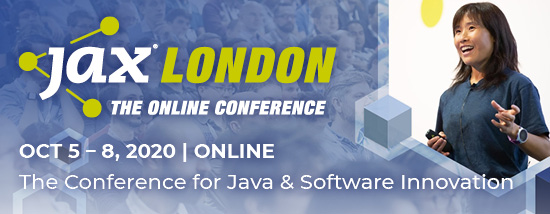A research study by The National Center for Women & Information Technology showed that “gender diversity has specific benefits in technology settings,” which could explain why tech companies have started to invest in initiatives that aim to boost the number of female applicants, recruit them in a more effective way, retain them for longer, and give them the opportunity to advance. But is it enough?
Three years ago, we launched a diversity series aimed at bringing the most inspirational and powerful women in the tech scene to your attention. Today, we’d like you to meet Sheeka Patak, Senior Software Engineer at Zendesk.
Today’s Woman in Tech: Sheeka Patak, Senior Software Engineer at Zendesk
Sheeka first studied genetics in Dublin, but dropped out for a variety of reasons. Afterwards she kept her head above water for a while with various odd jobs, for example as an au-pair and in direct sales. In 2012 she took an introductory course in Java programming and found her way into the tech industry.
This was followed by employment at Chatter Creators as a Ruby on Rails Developer. At the social media agency, Sheeka worked as a web developer. She joined Zendesk in 2016 and worked her way up from Backend/Software Engineer to Senior Software Engineer. Sheeka works there with the Mobile Shared Services team on new applications.
A day in Sheeka’s life
At Zendesk, I am a Senior Software Engineer and work with the Mobile Shared Services team. Since the beginning of

© City Headshots Dublin
the pandemic, there is no such thing as a typical working day anymore, to be honest. One thing that hasn’t changed is that the team’s work is very much based on collaboration. Our work often includes solving rather complex or confusing problems and exceptional cases. As a side effect of the fact that since the pandemic everyone is now working in their home office, my day, or rather my week, consists much more than before of writing documentation. There are many prejudices about engineers and documentation, but I am learning to accept that more and more!
What are you most proud of in your career?
I don’t think there is the one big thing I can call it. I am often proud of the little things. For example, when we complete a big, cross-team project or when someone really benefits from the work we’ve done. That is what makes me proud.
Unconscious bias and the tendency of some people to dismiss the lived experiences of others, combined with the impostor syndrome that not only women in the STEM sector have to contend with, can often lead to unintentional (but sometimes deliberate) gaslighting.
What first got you interested in tech?
I grew up with technology. My father has a very technical background and as far as I can remember we have always had a computer. I remember when we booted up our very first PC and were greeted by this green and black MS-DOS screen. My father would always be looking over our shoulders anytime we even looked at his disks because he was afraid we would bend them.
Did you receive support from your family and friends? Do you have a role model?
My family has always supported me tremendously in everything I do. The tech world is usually rather foreign to them, but they always make an effort to listen to me and understand what I am all about. I don’t really have a role model. There is no particular person I look at and think, “This is the kind of engineer I want to be”. Conversely, there are a lot of people who, in their own different ways, give great examples to strive for. One person may approach problems in a very pragmatic way, another may have a particularly sensitive approach to working together, and yet another may take different perspectives into account in everything they do.
At Zendesk we try to participate in grassroots projects. In this way, young girls who are thinking about a career in the tech sector get a true-to-life impression of women working in this field. I personally am involved in iWish, a kind of career fair that 15- to 16-year-old girls attend together with their school. There, various companies, including Zendesk, show what they do and try to demystify the tech world and the misconceptions that come with it. I also participate in Teen-Turn, where 15- to 16-year-old girls are placed in a technology company for two weeks in August and brought together with a mentor who works with them on a project and shows them on a very practical level what their work involves.
Did anyone ever try to put obstacles in your way?
No one ever obviously put obstacles in my way. My colleagues once told me that I should become a personnel manager instead of a specialist. I take that as a compliment – after all, they are saying that they see leadership qualities in me. I received similar feedback from a direct supervisor who massively questioned my decision not to become an HR manager. But I also took that as a compliment.
For women in general, this is a very multifaceted problem. There is not just one aspect that can be picked out and said: “This is the reason why women are underrepresented in the tech sector”. For me, two of the main causes are probably burnout and drop-out rates.
I recently read an article that said that of all new entrants to scientific and technical careers, women are 45% more likely than men to drop out within the first year. What’s more, with comparable scores on aptitude tests, one in five boys but only one in 20 girls say that a career in STEM is a possibility for them. Social prejudices and expectations mean that not enough women enter technical professions. Hostile working environments exacerbate this problem, as those who choose such careers do not stay long.
What challenges did you face?
As already indicated, hostile working environments are one of the biggest challenges. I am all the more pleased that Zendesk is doing everything possible, both now and in the future, to make the work environment welcoming and inclusive for everyone.
However, there is still a long way to go for every company and every team. Inequity in the workplace means that women are paid less, receive less recognition for their work, and often start at a clear disadvantage in performance reviews.
Unconscious bias and the tendency of some people to dismiss the lived experiences of others, combined with the impostor syndrome that not only women in the STEM sector have to contend with, can often lead to unintentional (but sometimes deliberate) gaslighting. This then puts women on the defensive and leads to them having to explain why they are not treated fairly. This in turn leads to them being called “attention-seekers”, “troublemakers”, “liars” or worse.
Would our world look different if more women worked in STEM?
Yes, of course, it would be different. The tech world is known for its rapid development and change. Unfortunately, this does not apply to discrimination in the workplace. Having more women in the technology industry could, in my opinion, help drive positive changes faster for other minorities as well. Since privileges, and the lack of them, are very intersectional, it doesn’t matter which change you tackle first – it will inevitably lead to improvements for everyone.
Since privileges, and the lack of them, are very intersectional, it doesn’t matter which change you tackle first – it will inevitably lead to improvements for everyone.
The discussion about diversity is gaining momentum. How long will it take to see the results of the current debate?
That is difficult to say. I think that companies that seriously address the challenges around diversity, equality, and inclusion will see positive effects on employee satisfaction fairly quickly once their sales figures and workplace culture improve. They are also likely to see increases in performance, innovation, and productivity, although it may take a little longer for this to become apparent.
In any case, I think it’s important to keep in mind that inclusion initiatives are not a magic wand to wave and suddenly everything is fine. The most important changes take time, patience, and perseverance and must be supported by all employees – regardless of job level.
What advice (and tips) would you give to women who want a tech career?
Every day will be a challenge in many ways. It is important not to compare yourself with others, to put yourself and your own mental health first, and to learn to live outside your comfort zone to a certain extent. There are many different areas where women’s voices are often suppressed in the tech world.
For example, when it comes to speaking out in meetings, getting their work recognized, or being represented at conferences. Different people will struggle with different aspects. But in order to advance their careers, women must learn to face situations, to rebuild people, and to stand up for themselves when necessary.
More Women in Tech:
- Women in Tech: “You are the best author of your own career path”
- Women in Tech: “Dare to do what you are interested in!”
- Women in Tech: “Join meetups and other women tech groups”
- Women in Tech: “The IT sector requires a lot of energy and will”
- Women in Tech: “I got to be a self-taught, self-managed, problem solver”
For even more Women in Tech, click here
The post Women in Tech: “The most important changes take time, patience, and perseverance” appeared first on JAXenter.
Source : JAXenter






















